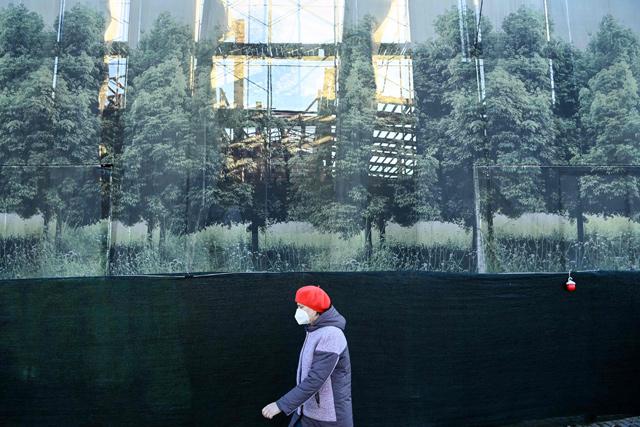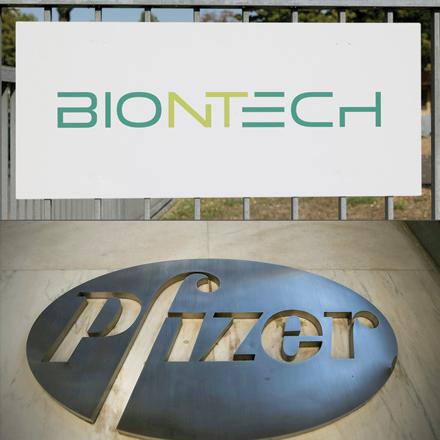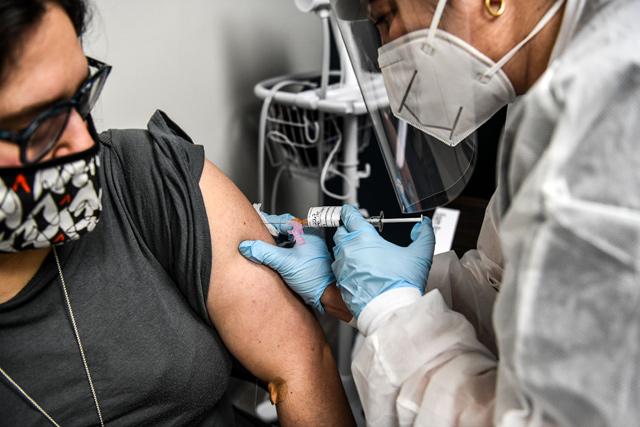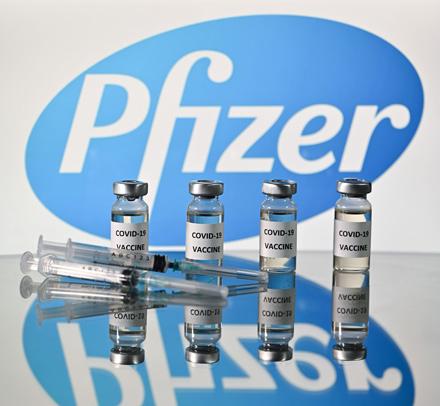You are here
Pfizer says Covid-19 vaccine 90% effective in Phase 3 trial
By AFP - Nov 10,2020 - Last updated at Nov 10,2020

A woman wearing a face mask to protect against the coronavirus disease walks in Moscow on Monday (AFP photo)
PARIS — A vaccine jointly developed by Pfizer and BioNTech was 90 per cent effective in preventing Covid-19 infections in ongoing Phase 3 trials, the companies announced on Monday.
The statement was released as soaring coronavirus cases across the world have forced many millions of people back into lockdown, causing further damage to ravaged economies.
European stock markets and oil prices jumped on the announcement.
And US President Donald Trump, who lost last week's election in part over his administration's response to the pandemic, hailed the announcement as "such great news".
According to preliminary findings, protection in patients was achieved seven days after the second of two doses, and 28 days after the first.
The companies said they expect to supply up to 50 million vaccine doses globally in 2020, and up to 1.3 billion doses in 2021.
"The first set of results from our Phase 3 Covid-19 vaccine trial provides the initial evidence of our vaccine's ability to prevent Covid-19," Pfizer chairman and CEO Albert Bourla said in a statement.
"We are a significant step closer to providing people around the world with a much-needed breakthrough to help bring an end to this global health crisis," he said.
"We are reaching this critical milestone in our vaccine development programme at a time when the world needs it most."
Seeking emergency use authorisation
Across much of the globe, Covid-19 infections rates are hitting record highs, with hospital intensive care units filling up and death tolls mounting.
US biotech firm Moderna, several state-run Chinese labs, and a European project led by the University of Oxford and AstraZeneca are also thought to be closing in on potentially viable vaccines.
Two Russian Covid-19 vaccines have been registered for use even before clinical trials were completed, but have not been widely accepted outside of Russia.
The Phase 3 clinical trial — the final stage — of the new vaccine, BNT162b2, began in late July and has enrolled 43,538 participants to date, 90 per cent of whom have received a second dose of the vaccine candidate as of November 8.
Pfizer said it is gathering two months of safety data following the final dose — a requirement of the US Food and Drug Administration — to qualify for Emergency Use Authorisation, which it expects by the third week in November.
“We look forward to sharing additional efficacy and safety data generated from thousands of participants in the coming weeks,” Bourla said.
‘Watershed moment’
While the Pfizer-BioNTech trial has yet to be peer-reviewed by experts, scientists reacted positively — if cautiously to the results.
Michael Head, senior research fellow in Global Health, University of Southampton, called it an “excellent result for a first generation vaccine”.
Peter Horby, professor of Emerging Infectious Diseases and Global Health in the Nuffield Department of Medicine, University of Oxford, said Pfizer’s announcement “feels to me like a watershed moment” in the pandemic.
But others pointed out that there would likely be significant logistical problems in getting the vaccine to everyone, especially given it must be kept super-cooled and currently requires two doses to bestow immunity.
Eleanor Riley, professor of Immunology and Infectious Disease at the University of Edinburgh, said for example that Monday’s results did not disclose the ages of participants.
“If a vaccine is to reduce severe disease and death, and thus enable the population at large to return to their normal day-to-day lives, it will need to be effective in older and elderly members of our society,” she said.
Dozens more candidates
The so-called messenger RNA, or mRNA, vaccine is a new approach to protecting against viral infection.
Unlike traditional vaccines, which work by training the body to recognise and kill proteins produced by pathogens, mRNA tricks the patient’s immune system to produce viral proteins itself.
The proteins are harmless, but sufficient to provoke a robust immune response.
The study also will evaluate the potential for the vaccine candidate to provide protection against COVID-19 in those who have had prior exposure to SARS-CoV-2, as well as vaccine prevention against severe COVID-19 disease.
Pfizer and BioNTech plan to submit data from the full Phase 3 trial for scientific peer-review publication.
As of mid-October, the World Health Organisation has identified 42 “candidate vaccines” at the stage of clinical trials, up from 11 in mid-June.
Ten of them were at the most advanced phase 3 stage, in which a vaccine’s effectiveness is tested on a large scale, generally tens of thousands of people across several continents.
Related Articles
FRANKFURT AM MAIN — Europe's medicines regulator said Tuesday it would decide by December 29 whether to grant emergency approval to a COVID-
WASHINGTON — Pfizer and BioNTech said Wednesday a completed analysis of their experimental COVID-19 vaccine found it protected 95 per cent o
LONDON — Britain on Wednesday became the first country to approve a COVID-19 vaccine for general use, announcing a rollout of Pfizer-BioNTec














